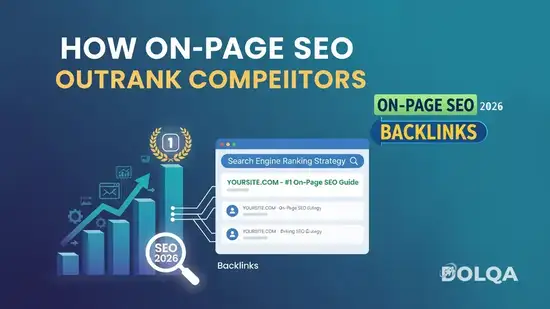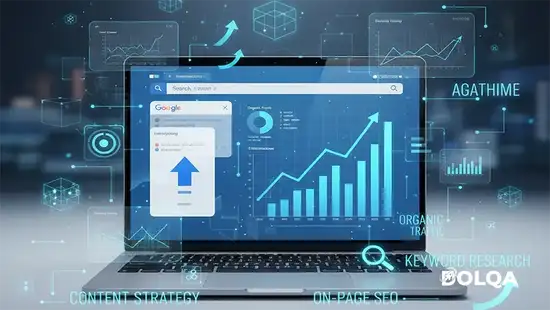How On-Page SEO Helps You Outrank Competitors on Search Engines
Introduction
In today’s competitive digital landscape, ranking higher on search engines like Google is crucial for driving organic traffic and growing your business. While off-page SEO (like backlinks) plays a significant role, on-page SEO is equally important—if not more—for long-term success.
By optimizing your website’s content, structure, and user experience, you can improve visibility, attract more visitors, and ultimately outrank competitors. In this guide, we’ll explore key on-page SEO strategies, including SEO 2026 trends and backlinks, to help you stay ahead.
Why On-Page SEO Matters
On-page SEO refers to optimizing individual web pages to rank higher and earn more relevant traffic. Unlike off-page SEO (which focuses on external factors like backlinks), on-page SEO is entirely within your control.
Key benefits include:
- Higher search rankings – Google prioritizes well-optimized content.
- Better user experience – Fast-loading, mobile-friendly pages keep visitors engaged.
- Increased organic traffic – Proper keyword usage attracts the right audience.
- Long-term sustainability – Unlike paid ads, SEO provides lasting results.
Top On-Page SEO Strategies to Outrank Competitors
1. Optimize Keywords for SEO 2026
Search engines continuously evolve, and SEO 2026 will likely emphasize semantic search, AI-driven rankings, and voice search optimization. To stay ahead:
- Use long-tail keywords (e.g., "best running shoes for flat feet" instead of just "running shoes").
- Incorporate LSI (Latent Semantic Indexing) keywords to improve relevance.
- Focus on user intent—what problem is your audience trying to solve?
2. Improve Content Quality & Readability
Google rewards high-quality, engaging content. To enhance yours:
- Write detailed, well-researched articles (1,500+ words for in-depth topics).
- Use subheadings (H2, H3) for better readability.
- Include multimedia (images, videos, infographics) to boost engagement.
3. Optimize Meta Tags & URLs
- Title tags should be under 60 characters and include the primary keyword.
- Meta descriptions (150-160 characters) should be compelling and include keywords.
- URLs should be short, descriptive, and keyword-rich (e.g.,
/best-running-shoesinstead of/page123).
4. Leverage Backlinks Strategically
While backlinks are part of off-page SEO, they still impact rankings. To build high-quality backlinks:
- Guest blogging on authoritative sites.
- Broken link building (replacing dead links with your content).
- Collaborating with influencers for natural link growth.
5. Enhance Page Speed & Mobile-Friendliness
- Use Google’s PageSpeed Insights to identify slow-loading elements.
- Compress images and enable browser caching.
- Ensure your site is mobile-responsive (Google’s Mobile-First Indexing prioritizes mobile-friendly sites).
Conclusion
On-page SEO is a powerful tool to outrank competitors and dominate search rankings. By optimizing keywords, improving content quality, and leveraging backlinks, you can future-proof your website for SEO 2026 and beyond.
Start implementing these strategies today, and watch your organic traffic grow!




Comments (0)
Leave a Comment
No comments yet. Be the first to comment!